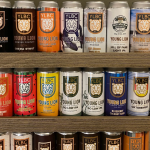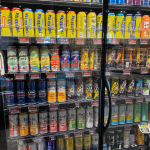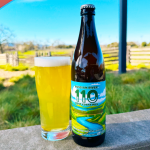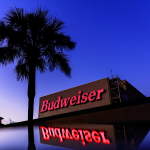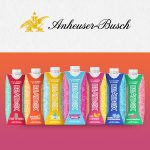
Budweiser Takes 1st in USA Today Ad Meter with ‘American Icons’ Ad
On a night when 23% of the Super Bowl ads promoted AI, Americana and beer came out on top in USA Today’s Ad Meter rankings.

On a night when 23% of the Super Bowl ads promoted AI, Americana and beer came out on top in USA Today’s Ad Meter rankings.
Young Lion Gets New Owner; Ex-Employee Sues Legion Brewing; Samuel Adams Drop a Cherry Bomb; Budweiser Drops Super Bowl LX Ad; People Moves at Holidaily, Bell’s; Athletic’s Bill Shufelt on Bold Names; Womrtown’s Patriot Place Taproom Gets a ‘Glow Up.’
Convenience store retailers offered an optimistic outlook on 2026 beverage sales in Goldman Sachs’ Q4 Beverage Bytes retailer survey, which represents roughly 28% of the c-store channel (around 42,000 retail locations).
Anheuser-Busch CEO Brendan Whitworth’s take on intoxicating hemp; non-alc Bero receives private equity investment; Otherlands Beer shares tariff impact; taproom closures; people moves; and more.
Russian River Brewing Company [RRBC] (Windsor & Santa Rosa, California) has begun donating proceeds from Russian River 110 West Coast Pils to Russian Riverkeeper, a local non-profit climate organization focused on its eponymous river.
Anheuser-Busch InBev (A-B) announced it will invest $30 million in its Jacksonville, Florida, brewery as part of the company’s Brewing Futures initiative to support American manufacturing.
We’ve compiled our most read stories of the past year, and one company dominated the headlines (with not the sunniest lineup of news): Anheuser-Busch InBev (A-B).
Anheuser-Busch InBev (A-B) will sell one brewery and shutter another two, the company announced today.
Anheuser-Busch InBev (A-B) will acquire a majority stake in party punch maker BeatBox for approximately $490 million, the company announced today.
Smog City Brewing co-founder Laurie Porter is a prepper. Even during craft’s days of double-digit growth in the middle 2010s, Porter, who calls herself “an incurable optimist,” was eyeing a future when that growth wouldn’t be there.
Anheuser-Busch InBev’s will-they, won’t-they $700 million acquisition of party punch maker BeatBox is still awaiting an answer. However, Dan Wandel, Bump Williams Consulting chief strategy officer, indulged what a combination of the two companies would mean for high ABV (8% and up) and flavored beverage-alcohol.
Anheuser-Busch InBev’s (A-B) business continues to be primarily driven by its core traditional beer brands, but the company believes it can also be a leader in non-alcoholic (NA) and beyond beer, CEO Michel Doukeris shared Thursday during the company’s Q3 earnings call with investors and analysts.
Anheuser-Busch InBev’s (A-B) U.S. volume declines accelerated in Q3, but the beer giant’s business continued to outperform category trends, the company reported today.
Tonya Cornett thought she would end her career at 10 Barrel Brewing. She had joined the Bend, Oregon-based craft brewery in 2012, piled up competition medals for her beers and created a following at the brewery. She thrived as the brewery’s R&D brewmaster before and after its 2014 sale to Anheuser-Busch InBev.
No job listings found for Anheuser-Busch InBev. Post a job listing now.
| Beer Name | Style | |
|---|---|---|
| No records to display. | ||
| Beer Name | Style | |
|---|---|---|
| No records to display. | ||
| Beer Name | Style | |
|---|---|---|
| No records to display. | ||
